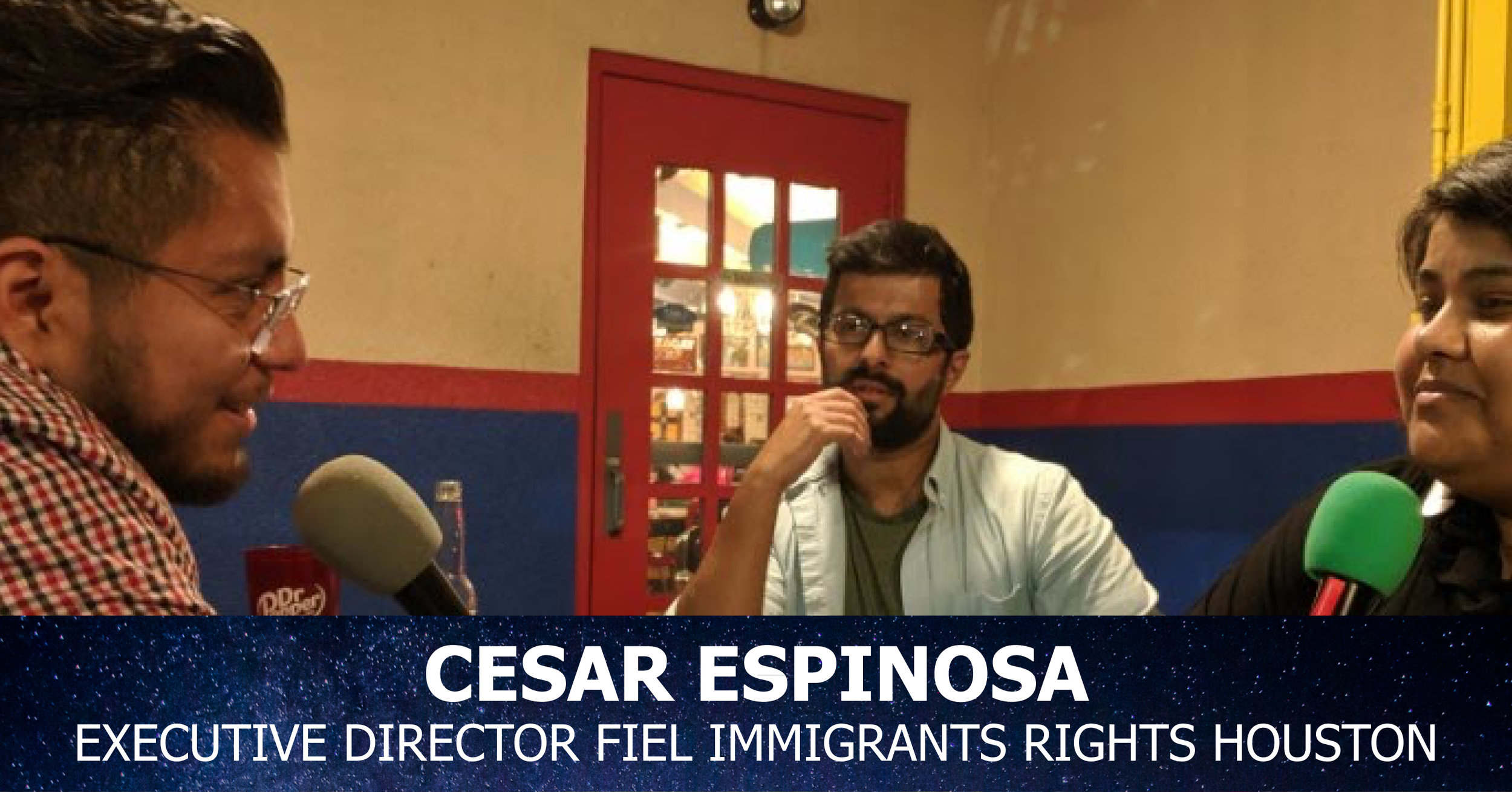WE’VE GOT A LOT OF WORK TO DO
PHOTO CREDIT: Ed Schipul
Houston has put yet another city council election season in the books. Most of the city hardly noticed, as only 18% of us went to the polls. It seems election fatigue (we literally have two special elections for the state legislature coming next year as well as a delayed election for City Council District B, and we just finished two rounds of voting on local races) combined with the fact that local elections take place in odd-numbered years has made for low turnout.
That aside, these elections still had major cultural and political implications for our city. Each race told us something about the candidates and about cross-sections of the city.
Let’s look one by one:
CITY COUNCIL RACE: AT-LARGE 1
Mike Knox winning a citywide election by 12 points is senseless on paper. Harris County’s Democratic sweep in 2018 was emphatic, and the City of Houston voted bluer than the county as a whole.
And yet here is Knox, a hard right former HPD officer who voted against census outreach and the Houston Equal Rights Ordinance, cruising to reelection.
Here are a few choice Mike Knox quotes:
When associations and alliances between friendly gangs are shown in a diagram, the diagram appears as a contemporary model of veins. Before the rise of this system of gang organization the police had an effective impact on gangs by the use of “zero tolerance,” which is the saturation of a troubled neighborhood with police officers, who put everyone in jail who commits the most minor infractions of the law.
-Mike Knox defending Broken Windows Policing
The “gangsta look” is popular among our youths because rebellion is popular among young people. I rebelled when I was a teen and you probably did too. Perhaps your rebellion or less severe than the next person’s but nevertheless you did rebel. Rebellion is at the core of the “gangsta look.” The baggy clothing is a statement about the morals and values of the older generation. Just as the long haired flower child look of the 1960s was repulsive to many older-generation members, so too is the gangsta look offensive to many adults today. A gang member i deal with regularly told me about how he had tried to get a job at a local business. I will try to quote him accurately in the following passage. “Yo, offisa Knox, I ben tryin’ to gets me a job. I went to the store and said, ‘Give me an app, I wants a job, cuz.” then the man, he say how he wasnt hirin’ right now. Two days later I seen this geek due working there. He didn’t hire me ’cause i’m black. See when yew is a brotha everybody be down on you, cuz. You can’t git no whare.” I asked my little gangster friend how he presented himself to the store owner and was told “like this, man” as he stretched his arms and did that cute little gangsta pirouette thing. He had on a bold blue and black plaid long-sleeve shirt buttoned all the way to the throat. The shirt was so large that it could have covered three of him. A pair of extremely baggy black Dickies pants hung so low on his skinny hips that I was convinced that a hard wind would expose him to the world. A blue bandanna, carefully folded, starched, and ironed to razor sharpness, hung from his rear pants pocket, a pair of black and white “gangsta Nikes,” and the appropriate amount of gold jewelry, patterned after various handguns, rifles, and shotguns, adorned his body. I stood looking at this picture of modern rebellion and rage and i told him he was wrong. The store owner refused to hire him because he looked like a gang member; his skin pigment had nothing to do with it. Joe businessman was probably relieved he didn’t get robbed during the interview. I explained to this angry young man that appearances and communication skills are very important in the real world. I had to agree that it is not fair, nor is it necessarily right, but nevertheless it is a fact of life. I suggested that he change his appearance and speak in proper English sentences. He could have picked his job.
— Mike Knox being racist as f***
Prison should be a place where social deviants at first lose all freedom. The resolve of the community not to tolerate criminal conduct should be made abundantly clear to the prisoner. There is no good reason why prisoners should have access to television sets, libraries, newspapers, telephones, etc. Likewise there is no reason a prisoner should not be expected to earn his way by working for the state, to offset the costs of housing and caring for him. The idea put simply: When you violate the rights of another you forfeit your own rights for a period of time established by a jury of your peers.
— Mike Knox giving a pitch for a corporate Prison Industrial Complex
Many of these youths are experienced criminals in their own right because of antiquated juvenile laws. Legislation needs to be enacted that removes investigative barriers from law enforcement organization pertaining to juvenile records. Laws such as denying the police the opportunity to maintain fingerprint and photographic records of juveniles allow some children to commit numerous and serious crimes without detection…The prohibition against using juvenile records in an adult court during the punishment phase of a trial should be lifted.
— Mike Knox backing up methods of mass incarceration
Denial by state and federal legislators lead to laws that encourage the conduct and reduce the accountability of gang members. A good example occurred with the 1993 Texas legislature. Texas had been experiencing a prison-overcrowding problem, so its legislators decided that decriminalization would effectively correct the problem. The state reduced the penalty range for auto theft, unauthorized use of a motor vehicle, and certain kinds of drug possession charges. Gang members like to steal cars and sell drugs. Now they can steal cars and sell drugs and face lighter penalties if they are caught in Texas.
— Mike Knox defending the Drug War
Adult and juvenile laws need to allow for the prosecution of every gang member present during the commission of a crime. Additionally, juvenile laws must allow the police to maintain local files, records, and photographs of juveniles, of any age, who commit felony offenses. Parole, probation, good time, and fancy formulas designed to reduce overcrowding must be stopped for adult and juvenile correctional facilities. City and county officials must take equally bold action.
— Mike Knox basically arguing to abolish parole or any guidelines to adjust a prison sentence
These quotes are all disqualifying in a county where cash bail was recently abolished and the urge for criminal justice reform stands strong against over-policing.
For good measure, take a look at Knox’s immigration “policy” (LOL):
So why did Knox win?
Raj Salhotra, Knox’s opposition, ran into some trouble throughout his campaign. Although his ground game efforts were some of the strongest in the city, he had trouble connecting with black voters. Part of his challenge came from what some claimed was an implied alliance in council races and charges of tone policing, but it went beyond that: Larry Blackmon and Georgia Provost both backed Knox in the race. Their decision was poor, and questioned by activists, but it was enough to help Knox shore up support from conservative Dems in the black community, and likely led to some undervotes.
What was hardest to shake, however, were career connections to charter schools. Raj’s ties to charter programs and TFA play fine with ed reformers in Houston, but they make public education advocates currently mired in a fight against TEA takeover nervous. Tepidness from left activists in a D vs. R runoff can be a problem.
Raj has his spots-he’s an ICE abolitionist-and I expect to see him run again. We’ll see if things go differently next time around. If they’re going to, the white left center and other supporters will have to deepen their understanding of Houston, and the Left is going to have to figure out a way to engage enough people to break the Establishment’s general stranglehold on our city when a candidate like Knox runs for reelection, and Raj will have to build some bridges.
(****UPDATE****
From a friend:
“My only criticism about your piece is on Raj. Provost and Blackmon backing Knox had nothing to do with it. Knox was in our neighborhoods, at our events, and talking to us months before Raj started pandering for our vote.”
So there’s another perspective).










